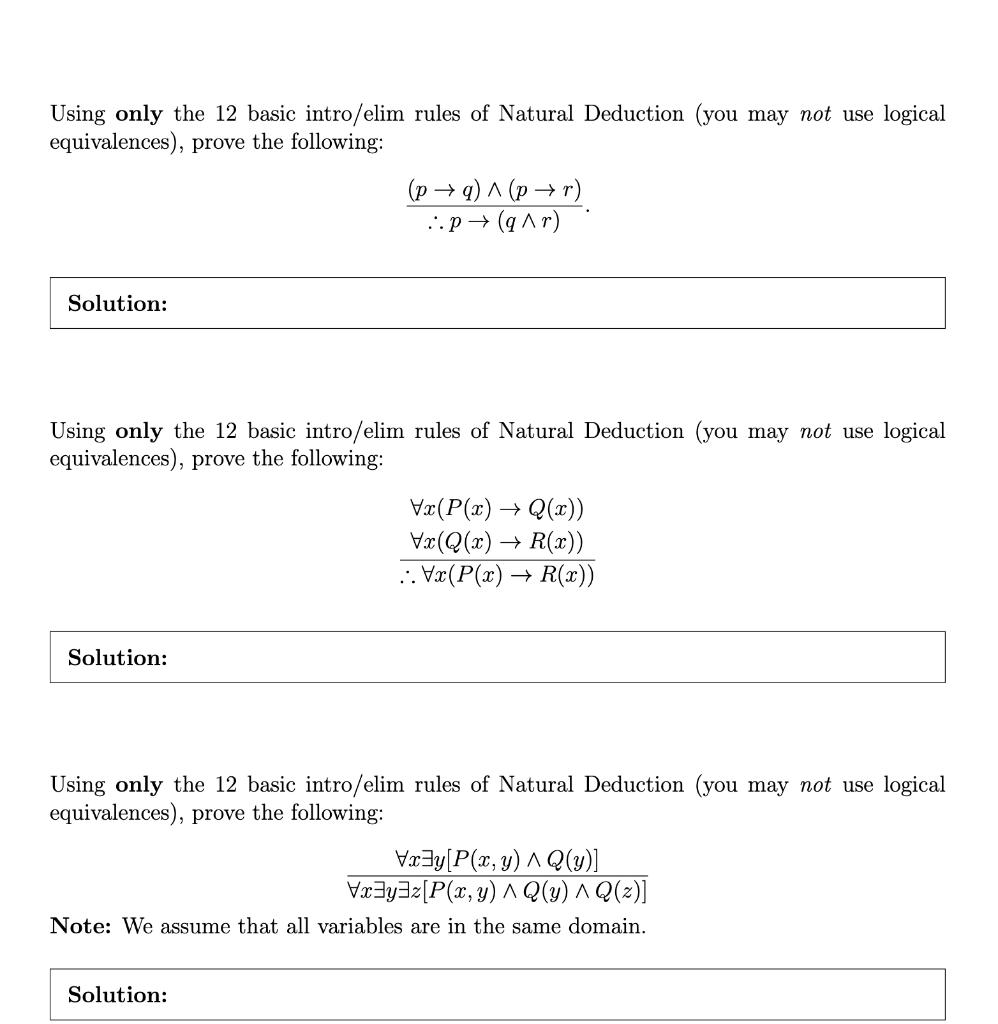Question
Using only the 12 basic intro/elim rules of Natural Deduction (you may not use logical equivalences), prove the following: Solution: Using only the 12

Using only the 12 basic intro/elim rules of Natural Deduction (you may not use logical equivalences), prove the following: Solution: Using only the 12 basic intro/elim rules of Natural Deduction (you may not use logical equivalences), prove the following: Solution: (pq) ^ (pr) ..p (q^r) Vx(P(x) Q(x)) Vx(Q(x) R(x)) .. Vx(P(x) R(x)) Using only the 12 basic intro/elim rules of Natural Deduction (you may not use logical equivalences), prove the following: Solution: Vxy[P(x, y) ^ Q(y)] Vxyz[P(x, y) ^ Q(y) ^ Q(z)] Note: We assume that all variables are in the same domain.
Step by Step Solution
3.40 Rating (156 Votes )
There are 3 Steps involved in it
Step: 1
The image shows logic problems that require proofs using the basic introelimination rules of Natural ...
Get Instant Access to Expert-Tailored Solutions
See step-by-step solutions with expert insights and AI powered tools for academic success
Step: 2

Step: 3

Ace Your Homework with AI
Get the answers you need in no time with our AI-driven, step-by-step assistance
Get StartedRecommended Textbook for
Income Tax Fundamentals 2013
Authors: Gerald E. Whittenburg, Martha Altus Buller, Steven L Gill
31st Edition
1111972516, 978-1285586618, 1285586611, 978-1285613109, 978-1111972516
Students also viewed these Mathematics questions
Question
Answered: 1 week ago
Question
Answered: 1 week ago
Question
Answered: 1 week ago
Question
Answered: 1 week ago
Question
Answered: 1 week ago
Question
Answered: 1 week ago
Question
Answered: 1 week ago
Question
Answered: 1 week ago
Question
Answered: 1 week ago
Question
Answered: 1 week ago
Question
Answered: 1 week ago
Question
Answered: 1 week ago
Question
Answered: 1 week ago
Question
Answered: 1 week ago
Question
Answered: 1 week ago
Question
Answered: 1 week ago
Question
Answered: 1 week ago
Question
Answered: 1 week ago
Question
Answered: 1 week ago
Question
Answered: 1 week ago
Question
Answered: 1 week ago
Question
Answered: 1 week ago
View Answer in SolutionInn App



